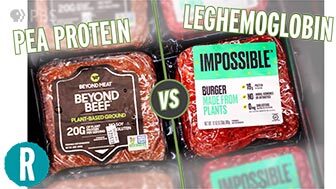Chemistry is helping us figure out how life got started on Earth and is giving us molecules to look for on other planets. In this episode of Reactions, we break down what “life” is and how likely we are to find it out in the cosmos.
- Sources:
Phosphine gas in the cloud decks of Venus
Habitable zones of different stars
The Habitable Zone
Protein Synthesis and the Genetic Code
Early life on earth
Phosphate backbone
Phosphodiester Bond
Primordial soup
Life on Venus? The picture gets cloudier
A Biologist Explains: What is Life?
Alternative Definitions of Life: Perspective Matters
The Seven Pillars of Life
Darwinian Evolution
Water on Mars
Life on other planets?
Exoplanet atmospheres
Hubble versus James Webb Telescope
Ingredients for life in space
Habitability on Mars from a Microbial Point of View
Vocabulary of Definitions of Life Suggests a Definition
Goddard Media Studios--transit spectroscopy
Phosphine gas found in Venus’ atmosphere may be ‘a possible sign of life’
NASA definition of life
Meteoritic Amino Acids: Diversity in Compositions Reflects Parent Body Histories
A search for amino acids and nucleobases in the Martian meteorite Roberts Massif 04262 using liquid chromatography‐mass spectrometry
The 1953 Stanley L. Miller Experiment: Fifty Years of Prebiotic Organic Chemistry
Prebiotic Soup--Revisiting the Miller Experiment









